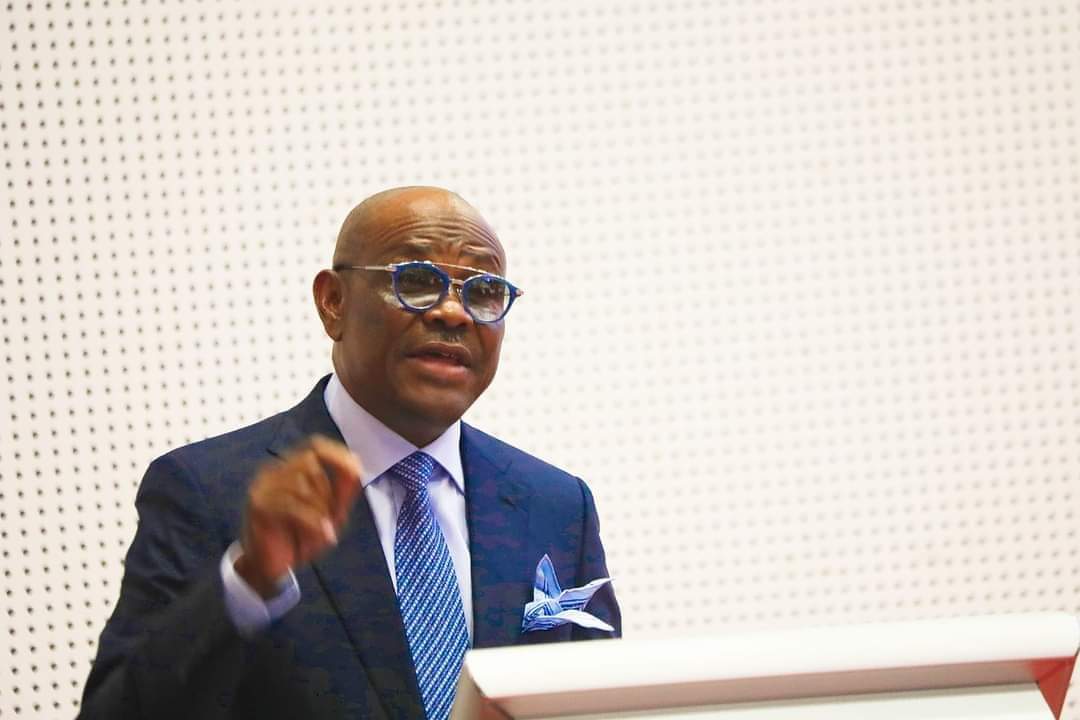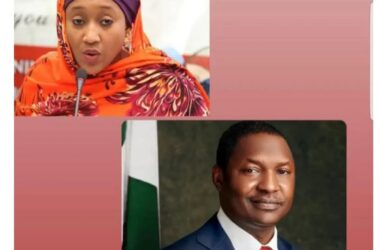The appointment was as bold as the respective characters of the appointees and his principal, and, by his own admission, no one was more surprised at his appointment by President Bola Ahmed Tinubu as Minister for the Federal Capital Territory (FCT) than Nyesom Wike himself.
And for good reason. For one, unlike his recent predecessors in the role, he is not a member of, nor is he a contributor to, the ruling party at the centre – in this case the All Progressives Congress (APC). On the contrary, Wike has long been the mover and shaker of the opposition People’s Democratic Party (PDP) and in the eyes of many, its most influential stalwart (even though Wike’s more recent image is that of a gadfly currently at odds with major stakeholders within his party). For another, as someone from the geopolitical south of Nigeria, he is stepping into an office that (for 37 out of the 40 years since Abuja’s designation as Nigeria’s federal capital) has been occupied by northern Nigerians, to the point where it was long seen by many as an exclusively northern preserve. In fact, apart from the FCT’s pioneer Minister, Mobolaji Ajose-Adeogun (who served from 1976 to 1979) ALL his 15 successors, without exception – John Kadiya, Iro Dan Musa, Haliru Dantoro, Mamman Vatsa, Hamza Abdullahi, Gado Nasko, Jeremiah Useni, Mamman Kotangora, Ibrahim Bunu, Mohammed Abba Gana, Nasir el-Rufai, Aliyu Modibbo Umar, Adamu Aliero, Bala Mohammed and Mohammed Bello – have come from the North.
Surprised or not, though, Chief (Barrister) Nyesom Ezenwo Wike, CON, the immediate past Governor of Nigeria’s Rivers State will, in the next few days, weeks and months, probably find that he is right in his element, given that – truth be told – the FCT is a state in all but name. In fact, there are those who said (as soon as his designated ministry was announced) that President Tinubu has just handed the 2-term Rivers State Governor a THIRD gubernatorial term! Fortunately, too, money should not be too much of a problem, because the respective financial profiles of oil-rich Rivers State and the FCT are roughly similar. While he was signing his last budget as Governor late last year (to the tune of N555.66bn, Bello – his predecessor in Abuja – was signing a budget estimate of N579.69 bn).
However, one difference between the two assignments, as former Lagos State Governor, Babatunde Fashola (another high performer as Governor whose later ministerial tenure was relatively less remarkable) can testify, is that as an elected Chief Executive, you’re in the driver’s seat, but as a political appointee, you’re just one of many passengers in a vehicle driven by someone else, a vehicle whose direction and speed you’re not in control of. During his tenure as Governor, Wike was known for his hard stances and straight talk and for taking actions that sometimes seemed brash and impulsive. But he will now need the support of the President to be able to take any drastic actions. Also, there is a significant difference between the respective budgeting systems at state and federal levels and the opportunities and impediments each presents as far as the speedy implementation of policies and execution of projects is concerned that a Wike may find problematic – though the Minister himself is quick to point out that he is no stranger to the federal system (having been the Minister of Education during the dying days of President Goodluck Jonathan’s administration).
In typical fashion, he has swung into action, as if eager to pick up in Abuja where he left off in Port Harcourt. But as he assumes office as the 17th FCT Minister, Wike will be confronted by a wide range of challenges, ranging from the current state of infrastructure, transportation, security and administration of the city and its environs.
Unfortunately, Wike (like his principal) is taking over from a predecessor whose record of performance was abysmal, to say the least. Most residents of the FCT are in agreement that the capital city experienced a state of stagnation under Muhammed Bello (who, ironically, happens to be the longest-serving FCT Minister, having held the position throughout the 8-year span of the Buhari administration). Under Bello, the territory struggled to keep street lights on, traffic lights barely worked, urban mass transit was non-existent, and slums grew apace while abandoned projects littered the territory – a far cry indeed from its relative heyday under Minister Nasir El-Rufai (later to become Governor of Kaduna State).
In his maiden press conference, the former Governor displayed a reassuring familiarity with the challenges confronting the capital city. He gave a remarkably blunt assessment of the impact of Abuja’s aesthetic and socio-economic decline in recent years, and was uncompromising in the manner he intends to tackle the challenges in the short and medium terms, at least . Actualising President Tinubu’s ‘Renewed Hope’ agenda, he said, would demand more rhan business as usual. A city that should be Nigeria’s answer to the Londons, Parises and Istanbuls of this world, a city which ought to be a local tourism and holiday destination for millions of Nigerians and foreigners alike (but which, in his words, ‘has now lost focus and strayed from the vision of its founding fathers’) demands no less than the most rigorous and pragmatic programme of restoration.
Wike has pledged to begin his assignment by plucking the proverbial low-hanging fruits.
Lighting up the city should be one of them. In recent years, a city which once sparkled and shinnered with lights at night, to the delight of visitors and residents alike, has become noticeably darker, thanks to non-functional or non-existent street lights on major roadways. One of the most glaring examples of this malaise is the Umaru Yar’adua Road (also known as Airport Road) – which is supposed to be the international gateway to the country. Large segments of that expressway are totally dark when night falls, leaving road-users prone to all manner of dangers. Also, as recent visitors to the city may have noticed, the City Gate, close to the Moshood Abiola Stadium, is totally unlit. The same story is replicated in many parts of the city, from the Central Business Area to the satellite towns.
Tackling the deteriorating security situation in the city is another low-hanging fruit. Despite hosting the headquarters of all of Nigeria’s security agencies, Abuja remains an increasingly insecure place. Though it has enjoyed a respite from the bomb blasts of yesteryears, Abuja still records an alarming number of attacks, which grew in frequency and intensity (including a daring and deadly prison break some months back), as well as reported cases of kidnapping in the satellite towns and villages. Also, black spots like the aforementioned unlit areas, but also undeveloped plots and uncompleted buildings around the city centre, have become safe havens for hoodlums and petty thieves who rob motorists during traffic-light stops at night. The new Minister has pledged to provide more logistics facilities and equipment to help security agencies combat the menace.
A major impediment to the task of combating insecurity, Wike has acknowledged, is the preponderance of street markets, motor parks and bus-stops scattered indiscriminately across the city. No more of those, says Wike, pledging to sanitise the situation after due consultation with the unions controlling these activities because of the sensitive nature of the problems that necessitate them. The fact that times are hard for many Nigerian households, he said however, is no reason to flout the law and lose our collective sanity. The same approach towards street trading, indiscriminate parking etc would, he said, be applied to the menace of motorized tricycles (Keke NAPEP, as they are called in Abuja) and okadas (commercial motorcycles) in prohibited areas.
During his Senate screening, Wike spoke proudly about how his administration in Rivers State constructed 12 flyover bridges in 4 years. Now that he is FCT Minister, this double-quick record of action, as far as the speedy completion of projects is concerned, is one that the people of Abuja will dearly love to experience. Though the city was one giant construction site in the past eight years, residents find it difficult to point to one project that was actually completed and delivered. So, completing the litany of projects in the FCT should be, if not exactly a piece of cake, certainly a low hanging fruit, for the man known back home as ‘Mr. Projects.’
The hard truth about Abuja is that it is beginning to reflect Nigeria’s unsavory reputation as a society of great inequality – with the very rich living in close and uneasy proximity with the very poor Behind the fancy buildings in Jabi, for example, exist massive slums. Same thing in other highbrow areas. Shanties are expanding in Abuja by the day, because the city cannot provide affordable housing – even for civil servants. Despite the constant fear of demolition and lack of basic amenities, thousands of people are flocking daily these slums because they cannot afford rent in the metropolis, and their income can no longer support the daily transportation to distant satellite towns like Kubwa, Bwari, Mararaba, Abaji, Kwali, Lugbe and Idu, etc. – let alone places as far as neighbouring states of Niger and Nassarawa. Wike says he understands the existence of these inner-city slums to be the symptoms of underlying issues like widening inequality, a dearth of affordable housing, artificially induced high rents and an inefficient mortgage system, and would tackle them accordingly, mainly by fixing mass transit, building more affordable housing, and providing infrastructure in satellite towns, in a bid to stem the growth of slums.
The Minister’s reference to mass transit is instructive and timely, because it is an indispensable aspect of modern urban life. There was a time, not too long ago, when Abuja looked set to be a pacesetter in this regard, and a reference-point for other cities in Nigeria. The administration of the aforementioned Nasir el-Rufai was notable for its strides in this area. But after his tenure, succeeding administrations have done little to build on what he put in place. Even in these early days, admirers of former Governor Wike are touting his current assignment as a return of the el-Rufai years. Perhaps this is one area in which he might want to replicate those glory years – especially now that the need for affordable mass transit for Abuja residents has become so compelling, given the spiraling cost of transportation. A cheaper way to connect the metropolis with the satellite towns will be a welcome relief for workers and other daily commuters.
Perhaps a better model than even el-Rufai, as far as mass transit is concerned would be Wike’s current principal, President Tinubu, who, during his tenure as Lagos State Governor, initiated the Bus Rapid Transport (BRT) system which has brought such a sea-change to the ecosystem of mobility and logistics in Nigeria’s commercial hub and former capital.
As already mentioned, a significant portion of FCT residents live outside the Abuja metropolis, thanks to the problems enumerated above, and most of these satellite towns are struggling with dilapidated infrastructure as the towns are expanding faster than investments in infrastructure. Thanks to its its proximity to the metropolis, residential estates are fast springing along the Airport airport road and other locations, but the government has not been able to provide roads and other facilities in these places. ‘Mr. Projects’ will have to tackle the challenge of providing better oversight of the 6 Area Councils of the FCT, and keep a closer eye on a more efficient way of utilising the special funds allocated to satellite towns and other new developments outside the Central Business District) .
The immediate past FCT Minister, Bello, lamented this last January that allocation of land in the FCT was perhaps his most difficult task, as land is becoming more scarce by the day. Perhaps he should have said that land IS available, but it is now dispensed by so-called ‘secondary marketers‘ (i.e. increasingly unscrupulous land speculators), who buy, and then wait to sell at outrageously exorbitant rates. Coupled with the failure and corruption of the allocation system, this secondary market has created a distortion in the housing market and negatively impacted rents within the city and the satellite towns. Even the allocation to developers for low-cost housing has failed to address the problem. This problem was even the subject of several legislative interventions at the level of the National Assembly – all of which have failed to yield any meaningful solutions. Wike has promised to review the land allocation process, remove the corruption in the system, and to place emphasis on the provision of low-income housing development – even if it means confiscating undeveloped land from unscrupulous speculators!
Other low-hanging fruits the Minister has identified on his bucket list include the need to review (i.e. revive) the FCT’s so-called ‘Park-and-Pay’ policy, which requires payment for parking at designated places in the metropolis. This policy was suspended in 2014 following a court order. Opinions are divided on the policy; while some argue that it will return sanity to roads in Abuja by stopping motorists from parking indiscriminately; others think the policy will bring further exploitation by revenue collectors. Also, fighting flooding – some it due to the reckless allocation of land, including wetlands and waterways, as well as poor maintenance of the drainage system – should be a priority for Wike.
Often touted as Africa’s fastest growing city, Abuja was planned to be sublime in tempo and temper, and yet smart and versatile enough to meet its administrative obligations to the Nigerian people. The ‘Centre of Unity,’ as it is also called, was strategically sited in Nigeria’s geographical middle and positioned to be a unifying multi-ethnic hub for all Nigerians, irrespective of background. But over the years, sadly, the city is not only replicating the very problems for which the federal government abandoned Lagos and rejected other alternative capital-city options, it has gained an unwanted reputation for being ‘a bourgeois city – where top government bureacrats take delight in telling poor residents, “Abuja is not for everybody.” This is another way of saying, ‘Keep Out‘. This attitude is not not only reprehensible, it also contradicts the very spirit of the city’s founding mission and its reason for being.
With the coming of Chief (Barrister) Nyesom Ezenwo Wike, CON, as FCT Minister, there is a surge of ‘Renewed Hope’ that Abuja will reclaim its original temper and tempo. His credentials as a go-getter and a man of action are undeniable. The city needs revamping, and his impressive résumé recommends him for the job.
Whether he can he do it without political distractions, however, remains to be seen.






